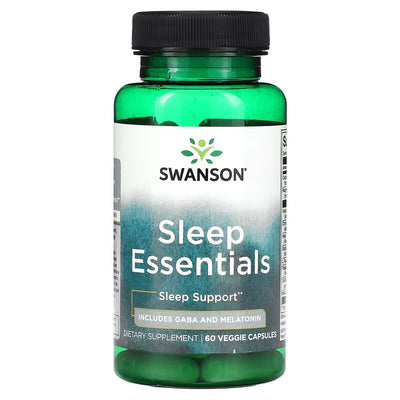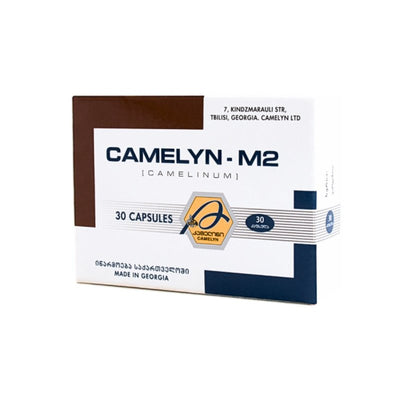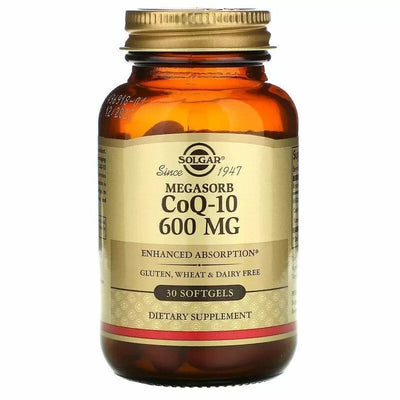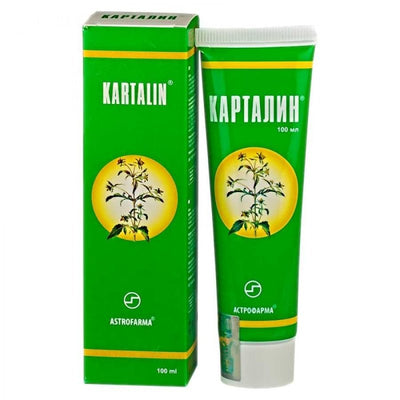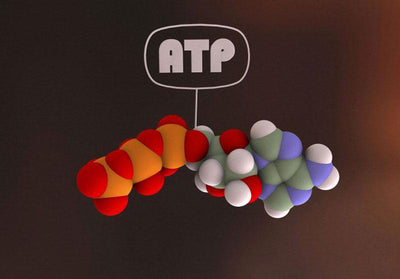Blog posts
Kofermentas Q10 svarbus antioksidantas ir energijos šaltinis organizmui
Kofermentas Q10: Svarbus antioksidantas ir energijos šaltinis organizmui
Kofermentas Q10 arba koenzimas Q10 yra svarbus antioksidantas ir energijos šaltinis organizmui. Tai yra organinė medžiaga, kuri yra būtina normaliai ląstelių funkcijai ir energijos gamybai organizme. Ši medžiaga yra vadinama ir ubichinonu, nes yra susijusi su vitamino K šeima.
Kofermentas Q10 yra gamintas organizme ir taip pat gali būti gaunamas iš maisto. Jis yra dažniausiai randamas raudonojoje mėsoje, žuvyje ir riešutuose. Tačiau kartais jo kiekis maiste gali būti per mažas, ypač senyvo amžiaus žmonėms ar žmonėms, turintiems tam tikrų sveikatos problemų.
Kofermentas Q10 yra svarbus antioksidantas, kuris apsaugo organizmą nuo laisvųjų radikalų, o tai yra cheminių medžiagų, kurios gali pažeisti ląsteles ir sukelia uždegimą. Kofermentas Q10 taip pat yra svarbus energijos šaltinis, nes jis yra būtinas normaliam mitocho ndrijų funkcijai. Mitochondrijos yra ląstelių organoidai, kurie gamina energiją organizmui. Todėl kofermentas Q10 gali padėti organizmui gaminti energiją, pagerinti sportinį pasirodymą ir sumažinti nuovargį.
Be to, kofermentas Q10 taip pat gali padėti pagerinti širdies ir kraujagyslių sveikatą. Tyrimai rodo, kad kofermentas Q10 gali padidinti kraujagyslių elastingumą, mažinti kraujospūdį ir pagerinti cholesterolio lygį kraujyje. Tai yra svarbu siekiant sumažinti širdies ligų riziką.
Kofermentas Q10 taip pat gali padėti pagerinti kepenų ir inkstų sveikatą. Tyrimai rodo, kad kofermentas Q10 gali sumažinti kepenų pažeidimų riziką ir padėti organizmui pašalinti toksinus. Be to, kofermentas Q10 taip pat gali padėti sumažinti inkstų pažeidimų riziką ir pagerinti inkstų funkciją.
Kofermentas Q10 gali padėti ir keletai kitų sveikatos problemų, tokių kaip migrena, depresija, Parkinsono liga ir kt. Tačiau daugiau tyrimų reikia, kad
Tikrasis margainis, silimarinas - kokia jo nauda ?
Bendriniai margainių pavadinimai: margainis, silimarinas, karsilis,
Lotyniški pavadinimai: Silybum marianum, Sinonimas Carduus marianus.
Margainių galima įsigyti įvairiais pavidalais, o populiariausias jų - maltos sėklos.
Tikrasis margainis yra graižiažiedžių šeimos augalas, labai paplitęs Viduržemio jūros pakrančių šalyse. Ten jis vadinamas Marijos dagiu.
Skirtingos margainio augalo dalys gali būti naudojamos įvairiems sveikatos sutrikimams gydyti. Dažniausiai jis naudojamas kepenų problemoms gydyti. Kai kurie teigia, kad šis augalas gali padėti gydant:
- Kepenų cirozę
- Geltą
- Hepatitą
- Tulžies pūslės sutrikimus
Margainio (silimarino) teikiama nauda organizmui
Margainiai naudojami kaip natūrali priemonė įvairioms sveikatos būklėms gydyti. Tačiau ar yra įrodyta kokia nors margainių nauda sveikatai?
Tikrojo margainio veiklioji medžiaga vadinama silimarinu. Tikrasis margainis daugiausia vartojamas kepenų ligoms gydyti, tačiau kai kurie žmonės teigia, kad jis gali sumažinti cholesterolio kiekį kraujyje ir padėti valdyti 2 tipo diabetą.
Šiame straipsnyje nagrinėjama 10 galimų tikrojo margainio privalumų ir analizuojama, ar yra kokių nors mokslinių įrodymų, pagrindžiančių jų vartojimą. Jame taip pat nagrinėjama, kaip margainis yra vartojamas, kokiomis formomis ir ar yra kokių nors pavojų, į kuriuos derėtų atsižvelgti.
10 teigiamų margainio teikiamų naudų sveikatai
Toliau pateikiama informacija apie galimą margainio naudą sveikatai.
1. Palaiko kepenų sveikatą
Viena iš labiausiai paplitusių margainio vartojimo priežaščių yra kepenų problemoms gydyti. 2016 m. atliktame NCCIH tyrime nustatyta, kad silimarinas pagerino dietos sukeltus pelių kepenų pažeidimus. Reikia daugiau įrodymų, kad būtų galima įrodyti, jog margainis taip pat naudingos ir žmonių kepenims.
Tačiau mokslininkai teorizuoja ir mano, kad taip ir yra. Veiklioji tikrojo margainio medžiaga silimarinas veikia kaip antioksidantas, mažindamas laisvųjų radikalų gamybą. Mokslininkai mano, kad tai sukuria detoksikuojantį poveikį, todėl būtent margainis gali būti naudingas esant kepenų problemoms.
Tačiau, kol neatlikta daugiau tyrimų, margainis nerekomenduojamas kaip pagrindinis kepenų problemų gydymo būdas. Tačiau tai gali būti naudingas papildomas gydymo būdas.
2. Skatina odos sveikatą
Margainio aliejus gali būti vartojamas kosmetiškai, siekiant pagerinti odos sveikatą.
Margainis gali padėti skatinti sveiką odą. 2015 m. atlikto tyrimo metu nustatyta, kad ant pelių odos užteptas pienių erškėtuogių aliejus padėjo pagerinti uždegimines odos būkles.
Kitame tyrime taip pat nustatyta, kad silimarinas turi antioksidacinį ir senėjimą stabdantį poveikį žmogaus odos ląstelėms.
Norint nustatyti, kokios naudos gali tikėtis žmogus, naudodamasis margainių aliejų ant odos, reikia atlikti tolesnius tyrimus su žmonėmis.
3. Mažina cholesterolio kiekį
Didelis cholesterolio kiekis gali sukelti širdies sveikatos problemų ir padidinti insulto tikimybę.
2006 m. atliktas tyrimas rodo, kad pieno raktažolės gali atlikti svarbų vaidmenį mažinant cholesterolio kiekį. Nustatyta, kad žmonėms, vartojusiems pienių erškėtuoges diabetui gydyti, cholesterolio kiekis buvo mažesnis nei tiems, kurie vartojo placebą.
4. Palaiko svorio mažėjimą
2016 m. atliktų pirminių tyrimų su gyvūnais metu nustatyta, kad silimarinas lėmė svorio mažėjimą pelėms, kurios buvo šeriamos dieta, skirta svoriui priaugti.
Tai leidžia manyti, kad pieno raktažolės gali būti naudingos norintiems numesti svorio. Tačiau norint tai patvirtinti, reikia atlikti daugiau tyrimų apie pieno raktažolių poveikį lieknėjimui žmonėms.
5. Mažina atsparumą insulinui
Tyrimas su pelėmis parodė, kad tikrojo margainio ekstraktas padeda sumažinti atsparumą insulinui. Atsparumas insulinui yra 2 tipo cukriniu diabetu sergančių žmonių problema.
Nors šis tyrimas rodo, kad pieno raktažolės gali būti svarbios diabeto valdymui, reikia daugiau tyrimų, kad būtų patvirtinta, ar pieno raktažolės mažina atsparumą insulinui ir padeda valdyti diabetą.
6. Gerina alerginės astmos simptomus
Pienių raktažolių veiklioji medžiaga gali padėti sumažinti uždegimą. 2012 m. atliktame tyrime nustatyta, kad silimarinas padėjo apsaugoti nuo uždegimo alergine astma sergančių pelių kvėpavimo takus.
Reikia atlikti daugiau tyrimų, kad būtų galima nustatyti, ar silimarinas padeda astmos simptomams žmonėms.
7. Apriboja vėžio plitimą
Pieno raugerškis gali padėti sustabdyti tam tikrų rūšių vėžio plitimą. 2016 m. apžvalgoje nustatyta, kad pieno raktažolių ekstraktas slopina vėžinių ląstelių augimą sergant storosios žarnos vėžiu.
Reikia atlikti daugiau tyrimų, kad būtų galima nustatyti, kaip pieno raktažolės gali būti naudojamos kovojant su vėžiu.
8. Palaiko kaulų sveikatą
Pieno raktažolių arbata gali padėti išvengti estrogenų stokos sukelto kaulų nykimo.
Silimarinas gali atlikti esminį vaidmenį palaikant kaulų sveikatą. 2013 m. atlikto tyrimo metu nustatyta, kad margainis padeda išvengti kaulų nykimo.
Tyrime buvo nagrinėjamas būtent kaulų nykimas dėl estrogenų trūkumo. Kol kas neaišku, ar pieno raktažolės taip pat naudingos kaulų netekimui dėl kitos priežasties.
Reikia atlikti daugiau tyrimų, kad būtų galima daryti saugią išvadą, jog pieno raktažolės palaiko žmonių kaulų sveikatą.
9. Gerina pažinimą
2015 m. atlikto tyrimo metu nustatyta, kad pieno raktažolės didina atsparumą oksidaciniam stresui. Oksidacinis stresas yra potenciali Alzheimerio ligos priežastis.
Tokiu būdu pieno raktažolės gali padėti gerinti pažinimą ir gydyti degeneracines ligas, kurios turi įtakos protui. Norint patvirtinti pieno raktažolių poveikį pažinimui, reikia atlikti daugiau tyrimų su žmonėmis.
10. Stiprina imuninę sistemą
Margainyje ęsantis silimarinas gali padėti sustiprinti žmogaus imuninį atsaką ir padėti jam kovoti su infekcijomis.
2016 m. atlikus tyrimą su gyvūnų modeliu nustatyta, kad vartojamas silimarinas pagerino imunitetą. Senesniame tyrime nustatyta, kad pieno raktažolių ekstraktas teigiamai veikė žmonių imuninį atsaką.
Reikia atlikti daugiau tyrimų su žmonėmis, kad mokslininkai galėtų tvirtai teigti, jog pieno raktažolės stiprina žmogaus imuninę sistemą.
Kaip vartoti tikrajį margainį?
Margainio kaip papildų galima įsigyti daugelyje sveiko maisto parduotuvių. Standartinės silimarino dozės nėra, todėl geriausia perskaityti ant pakuotės siūlomą dozavimą.
Pienių raktažolių taip pat galima įsigyti kaip arbatos. Jei geriate margainių arbatą, geriausia suvartoti ne daugiau kaip 6 puodelius per dieną.
Rizika ir apsvarstymai
Kadangi pieno raktažolė yra maisto papildas, Jungtinių Amerikos Valstijų Maisto ir vaistų administracija (FDA) jos nereguliuoja taip, kaip reguliuoja vaistus. Dėl šios priežasties svarbu margainį pirkti iš patikimų mažmenininkų.
Kaip ir bet kurią kitą natūralią priemonę, prieš pradėdami vartoti pieno dygliuotį, žmonės turėtų aptarti jo vartojimą su gydytoju.
Pieno raktažolės gali sąveikauti su kai kuriais vaistais. Tai ypač aktualu, jei žmogus jau gydosi nuo kepenų ligų.
Apibendrinimas
Pieno raktažolės gali būti naudingos sveikatai dėl savo veikliosios medžiagos - silimarino, kuris yra antioksidantas.
Kad būtų galima patvirtinti galutinį pieno raktažolių naudos sąrašą, reikia atlikti daugiau tyrimų. Vis dėlto tai yra sveikatai naudingas maisto papildas, kurį verta išbandyti kartu su įprastiniu gydymu.
Prieš pradedant vartoti pieno raktažolę ar bet kurį kitą papildą, visada reikėtų pasitarti su sveikatos priežiūros specialistu, nes jis gali sąveikauti su kitais vaistais ar ligomis.
Pieno raktažolių papildų galima įsigyti sveiko maisto parduotuvėse arba internetu.
Paskutinį kartą mediciniškai peržiūrėta 2017 m. gruodžio 20 d.
Straipsnis parašytas remiantis atliktais tyrimais iš:
National Center for Biotechnology Information ir U.S. National Library of Medicine
L-Lizinas esminė aminorūgštis kovoje prieš herpes virusą ir kiti jos privalumai.
Glaustai apie L-Liziną. Kas tai ir kam jis reikalingas?
Lizinas yra baltymų statybinė medžiaga. Tai nepakeičiama aminorūgštis, kurios mūsų kūnas negali pasigaminti pats, todėl svarbu ją gauti su maistu.
L-Lizinas svarbus normaliam augimui ir raumenims, medžiagų apykaitai, jis naudojamas formuojant karnitiną - medžiagą, esančią daugumoje mūsų kūno ląstelių. Be to, jis dalyvauja riebalų transportavime tarp ląstelių, kad šie būtų sudeginti energijai gauti.
L-lizinas yra tokia lizino forma, kurią žmogaus kūnas gali įsisavinti. Jis natūraliai randamas maiste ir yra naudojamas papilduose.
Esminiai lizino privalumai sveikatai:
-
Gali apsaugoti nuo pūslelinės ir išgydyti nuo jos, blokuodamas argininą.
Pūslelinė ar herpeso pūslelės yra infekcijos simptomai, dažnai atsirandantys ant lūpų ar lupų kampeliuose.
Jos atrodo kaip skysčio pripildytos pūslelės, kurios gali sukelti diskomfortą, pvz., dilgčiojimą, skausmą ir deginimą. Be to, jie gali priversti jus pergyventi dėl savo išvaizdos.
Pūslelinę sukelia 1 tipo herpes simplex virusas (HSV-1), kuris gali pasislėpti stubure. Streso metu arba jei jūsų imuninė sistema yra susilpnėjusi, HSV-1 gali paskatinti pūslelinės atsiradimą.
Lizino papildai gali padėti išvengti HSV-1 plėtimosi ir sutrumpinti pūslelinės trukmę. Manoma, kad lizinas blokuoja kitą amino rūgštį, vadinamą argininu, kurios virusui HSV-1 reikia augimui.
Vieno tyrimo metu nustatyta, kad kasdien vartojant 1000 mg lizino, 26 žmonėms, kuriems pasireikšdavo pasikartojanti pūslelinė, sumažėjo pūslelinių atsiradimo atvejų.
Įdomu tai, jog tyrimas parodė, kad sumažėjo pūslelinių skaičius, kai lizino kiekis žmogaus kraujuje buvo didesnis nei 165 nmol/l. Kai lizino kiekis žmogaus kraujuje nukrisdavo žemiau šio lygio, pūslelinių atsiradimų padaugėdavo.
Kitas tyrimas, kuriame dalyvavo 30 žmonių, parodė, kad tepant kremą su lizinu, žolelėmis, vitaminais ir cinku trečią dieną 40% dalyvių išsigydė nuo lūpų pūslelinės, o šeštą dieną - 87% dalyvių.
Nors šis tyrimas atrodo perspektyvus, jame nebuvo nurodytas lizino ar kitų kreme naudojamų ingredientų kiekis.
Be to, ne visi tyrimai rodo, kad lizinas veiksmingai mažina pūslelinės atsiradimą ar trukmę. Vienoje apžvalgoje nustatyta, kad nepakanka įrodymų, leidžiančių rekomenduoti jį pūslelinės gydymui.
-
Gali sumažinti nerimą, blokuodamas reagavimo į stresą receptorius.
Lizinas gali atlikti tam tikrą vaidmenį mažinant nerimą.
Vienas tyrimas parodė, kad jis blokuoja receptorius, susijusius su atsaku į stresą. Mokslininkai pastebėjo, kad žiurkėms, kurioms buvo skiriamas lizinas, sumažėjo streso sukeltas viduriavimas.
Vienos savaitės tyrimo, kuriame dalyvavo 50 sveikų žmonių, metu buvo pastebėta, kad 2,64 g lizino ir arginino vartojimas papildų forma sumažino streso sukeltą nerimą bei streso hormono kortizolio kiekį.
Panašiai pridėjus 4,2 g lizino vienam kvietinių miltų kilogramui (2,2 svaro) neturtinguose Sirijos kaimuose, sumažėjo nerimo balai vyrams, patiriantiems labai didelį stresą.
Po trijų mėnesių lizinu praturtintų miltų vartojimas taip pat padėjo sumažinti kortizolio kiekį pas moteris.
Lizinas taip pat gali padėti žmonėms, sergantiems šizofrenija, psichikos sutrikimu, dėl kurio sutrinka žmogaus išorinio pasaulio suvokimas, kas dažnai neleidžia asmeniui suprasti tikrovės.
Nors tyrimai dar tik ankstyvuosiuose etapuose, lizinas potencialiai gali pagerinti šizofrenijos simptomus kartu su paskirtais vaistais.
Apibendrinus: lizinas kai kuriems žmonėms gali padėti sumažinti nerimą bei streso hormono kortizolio kiekį. Ankstyvieji tyrimai rodo, kad jis netgi gali padėti pagerinti simptomus šizofrenija sergantiems žmonėms.
-
Gali pagerinti kalcio įsisavinimą ir išsaugojimą
Lizinas gali padėti jūsų organizmui išsaugoti kalcį.
Manoma, kad lizinas padidina kalcio absorbciją žarnyne ir padeda inkstams išlaikyti šį mineralą.
Tyrime, kuriame dalyvavo 30 moterų, iš jų - 15 sveikų ir 15 sergančių osteoporoze, nustatyta, kad papildai su kalciu ir lizinu sumažina kalcio praradimą su šlapimu.
Moterims, kurioms buvo skiriami tik 3 g kalcio, šlapime palaipsniui didėjo kalcio kiekis. Tačiau moterys, kurios taip pat gavo 400 mg lizino, su šlapimu prarasdavo mažiau kalcio.
Atrodo, kad lizinas apsaugo jūsų kaulus ir taip pat gali padėti kontroliuoti kur kalcis transportuojamas jūsų kūne.
Pavyzdžiui, buvo įrodyta, kad jis užkerta kelią kalcio kaupimuisi žiurkių kraujagyslėse. Toks kaupimasis yra rizikos veiksnys širdies ligoms atsirasti.
Be to, vieno mėgintuvėlio tyrimo metu nustatyta, kad ląstelės, augintos be lizino, turėjo padidintą kalcio judėjimą iš ląstelės. Šis padidėjimas nepasireiškė ląstelėse, kuriose buvo lizino.
Apibendrinus: lizinas gali padėti įsisavinti daugiau kalcio ir sumažinti kalcio praradimą su šlapimu. Tai netgi gali sumažinti kalcio kaupimosi kraujagyslėse riziką.
-
Gali skatinti žaizdų gijimą, padėdamas gaminti kolageną:
Lizinas gali pagerinti žaizdų gijimą. Sutrumpinti gijimo laiką.
Gyvūnų audiniuose lizinas tampa aktyvesnis žaizdos vietoje ir padeda pagreitinti gijimo procesą.
Lizinas reikalingas kolageno gamybai - baltymo, kuris veikia kaip statybinė medžiaga naujų ląstelių gamybai ir padeda palaikyti bei suteikti struktūrą odai, raiščiams, sausgyslėms, raumenims ir kaulams.
Pats lizinas taip pat gali veikti kaip rišiklis, taip padidindamas naujų ląstelių skaičių žaizdos vietoje. Jis netgi gali paskatinti naujų kraujagyslių susidarymą.
Vieno tyrimo su gyvūnais metu lizino ir arginino aminorūgšties derinys pagreitino ir pagerino lūžių gijimo procesą.
Tyrimo, kuriame buvo panaudota 40 triušių, metu nustatyta, kad 21 mg lizino vienam kūno svorio vienetui (47 mg/kg) ir 23 mg arginino vienam kūno svorio vienetui (50 mg/kg) žymiai pagerino kraujotaką ir bendrą kaulų gijimą.
Iš tikrųjų, triušiai, kuriems buvo duodamas lizinas ir argininas, parodė 2 savaičių trumpesnį gijimo laiką, palyginti su kontroline grupe.
Žaizdų gijimas yra sudėtingas procesas, reikalaujantis įvairių medžiagų: mineralų, aminorūgščių ir kt. Pasirodo, kad lizinas atlieka itin svarbų vaidmenį ir be tinkamo jo kiekio žaizdų gijimo procesas sutrinka.
Tyrimai su žmonėmis parodė, kad tepant gelį ant žaizdų, kurio sudėtyje yra lizino, sumažina infekciją ir pagreitina gijimo laiką lyginant su grupe tiriamųjų, kurių atveju gelis nebuvo naudojamas.
Apibendrinus: lizinas yra būtinas kolageno, esminio baltymo, turinčio įtakos žaizdų gijimui, susidarymui. Tyrimai su gyvūnais rodo, kad lizinas gali pagreitinti žaizdų gijimą ir sutrumpinti pasveikimo trukmę.
Kiti L-Lizino privalumai
Lizinas, kaip ir visos aminorūgštys, yra naudojamas kaip statybinė medžiaga jūsų organizmo baltymams. Šie baltymai padeda gaminti hormonus, imunines ląsteles ir fermentus.
Be anksčiau minėtų, lizinas gali turėti dar keletą privalumų.
Štai kiti aspektai, kuriuose lizinas gali būti naudingas jūsų sveikatai:
- Vėžys: vieno tyrimo su gyvūnais metu nustatyta, kad lizinas kartu su antioksidantu katechinu sumažino pelių vėžio ląstelių augimą
- Akių sveikata: atlikus tyrimą su žiurkėmis, sergančiomis cukriniu diabetu, nustatyta, kad lizino papildai gali užkirsti kelią kataraktos vystymuisi
- Diabetas: vienas tyrimas parodė, kad lizinas gali padėti sumažinti cukraus kiekį cukrinio diabetu sergančių žmonių kraujyje. Tačiau ryšys vis dar neaiškus
- Kraujo spaudimas: tyrimas, kuriame dalyvavo 50 suaugusiųjų, sergančių lizino trūkumu ir aukštu kraujospūdžiu, parodė, kad lizino papildai žymiai sumažino kraujospūdį
Reziumė: lizino tyrimai yra perspektyvūs, kadangi kai kurie įrodymai liudija, kad jis gali turėti priešvėžinį poveikį, padėti pagerinti cukraus kiekį kraujyje bei sumažinti kraujospūdį.
Esminė išvada
Lizinas yra nepakeičiama aminorūgštis, turinti daug privalumų: nuo pūslelinės prevencijos iki nerimo mažinimo ir žaizdų gijimo skatinimo.
Kaip baltymų statybinė medžiaga, jis taip pat gali turėti daug kitų privalumų. Be pakankamo lizino kiekio, jūsų kūnas gali nesugebėti gaminti tinkamų hormonų ir imuninių ląstelių ar jų pakankamo kiekio.
Lizino yra daug mėsos, žuvies ir pieno produktuose, tačiau ankštiniai augalai, vaisiai ir daržovės taip pat prisideda prie jo suvartojimo.
Šaltiniai:
(https://www.healthline.com/nutrition/lysine-benefits#TOC_TITLE_HDR_8)
Kas yra antioksidantai, kokie yra jų privalumai ir kaip juos galima įtraukti į mitybą.
Šiame straipsnyje aptarsime, kas yra antioksidantai, kokie yra jų privalumai ir kaip juos galima įtraukti į mitybą.
Kas yra antioksidantai?
Antioksidantai yra medžiagos, kurios apsaugo organizmą nuo laisvųjų radikalų žalos. Laisvieji radikalai yra nepageidaujamos cheminės medžiagos, kurios susidaro organizme dėl įvairių veiksnių, tokių kaip UV spinduliai, rūkymas arba bloga mityba. Jie gali sukelti oksidacinį stresą organizme, kuris gali paveikti ląstelių funkciją ir sukelti ląstelių pažeidimą. Tai gali sukelti ligas ir senėjimo procesą.
Antioksidantai slopina laisvųjų radikalų veikimą ir apsaugo organizmo ląsteles nuo jų žalos. Kai antioksidantų kiekis organizme yra pakankamas, jie gali apsaugoti organizmą nuo įvairių ligų, tokias kaip vėžys, širdies ir kraujagyslių ligos, Alzheimerio liga, artritas ir kiti.
Kokie yra antioksidantų privalumai?
Antioksidantai turi daugybę privalumų organizmui. Keli iš jų yra:
- Pagerina imuninę sistemą: antioksidantai padeda apsaugoti ląsteles nuo laisvųjų radikalų, kurie gali silpninti imuninę sistemą ir padidinti jautrumą ligoms.
- Sumažina uždegimą: antioksidantai gali sumažinti uždegimą organizme, kuris gali sukelti artritą, astmą ir kitas ligas.
- Padeda apsaugoti nuo vėžio: antioksidantai gali padėti apsaugoti organizmą nuo vėžio, slopindami laisvųjų radikalų veikimą, kuris gali sukelti ląstelių pažeidimus ir mutacijas.
- Gerina sveikatą ir gerovę: antioksidantai gali padėti sumažinti senėjimo procesą ir gerinti sveikatą, padėdami organizmui kovoti su laisvaisiais radikalais.
Kaip galima įtraukti antioksidantus į mitybą?
Antioksidantai yra labai svarbūs sveikatai ir juos galima lengvai įtraukti į mitybą. Štai keletas patarimų:
-
Įtraukite į savo dietą daugiau vaisių ir daržovių - vaisiai ir daržovės yra geriausias antioksidantų šaltinis. Pasirinkite įvairius spalvų ir rūšių vaisius bei daržoves, kad gautumėte kuo daugiau skirtingų antioksidantų.
-
Valgykite daugiau riešutų ir sėklų - riešutuose ir sėklose yra daug antioksidantų, taip pat jie turi ir kitų svarbių maistinių medžiagų.
-
Geriau virkite maistą - kai kurios maisto produktų sudedamosios dalys tampa antioksidantais tik po to, kai jie yra paruošti. Pvz., pomidoruose yra likopeno antioksidantas, kurio efektyvumas padidėja, kai jie yra paruošti ir patiekiami su nedidelio kiekio riebalais.
-
Pasirinkite produktus su aukštu antioksidantų kiekiu - daugelyje produktų etiketėje yra nurodomas antioksidantų kiekis. Pasirinkite produktus, kurių antioksidantų kiekis yra aukštas.
-
Gerkite daugiau arbatos - arbatos yra gerai žinomas antioksidantas, vadinamas katechinu. Ypač naudinga yra žalioji arbata, nes joje yra didesnis katechinų kiekis nei kitose arbatose.
-
Valgykite maistą, kuriame yra daug vitaminų ir mineralų - vitaminai C, E ir A yra svarbūs antioksidantai, taip pat selenas ir cinkas.
-
Įtraukite prieskonius - kai kurie prieskoniai yra geri antioksidantų šaltiniai, pvz., cinamonas ir gvazdikėliai.
Svarbu žinoti, kad nereikia vartoti didelių antioksidantų kiekių per mažai laiko. Geriau valgyti maistą, kuriame yra įvairių maisto produktų su skirtingais antioksidantais, kad organizmas gautų visą reikiamą antioksidantų kiekį.
Be sutikimo draudžiama kopijuoti ir platinti svetainėje esančią informaciją.
